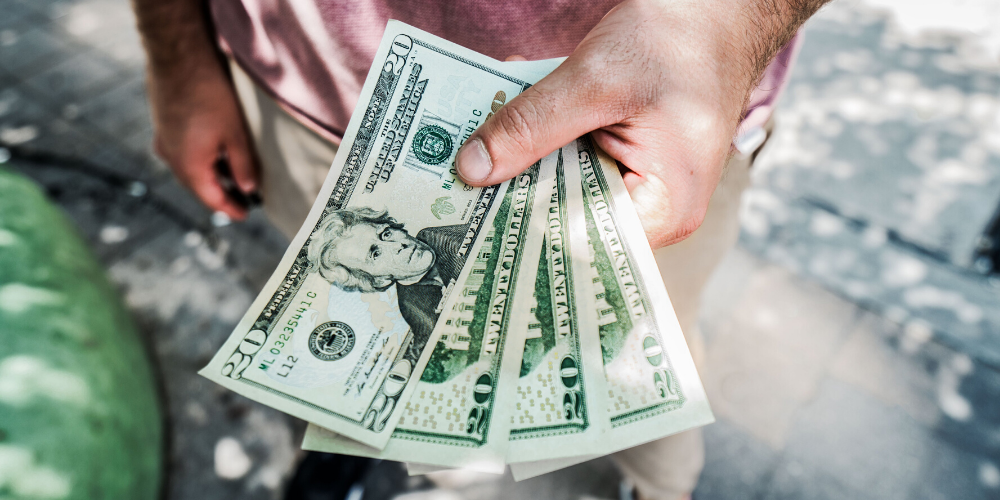
Prior the coronavirus outbreak, there was a growing rate of stores and businesses no longer accepting cash. While this may seem like a natural progression as technology and digital banking grow, this cashless model was actually met with a lot of backlash. Just six months ago in January 2020 (which may feel like years to many of us), New York passed a bill banning businesses from rejecting cash payments nearly unanimously. City Council member Ritchie Torres of New York initiated the bill after being turned away at a coffee shop for only having cash. Upon further research, he realized many others were equally unhappy about these cashless shops, particularly among senior citizens.
New York isn’t the only place that made strides against this. Since 2019, Philadelphia and San Francisco have banned cashless stores, and Washington, D.C. is currently considering the “Cashless Retailers Prohibition Act of 2019,” which is still In Committee, with its most recent hearing on February 13th, 2020. The states of New Jersey and Massachusetts both have cashless bans as well. Alina Selyukh of NPR expressed that this was a rare instance of governments preventing a tech trend, fighting it before it became too far spread.1
The problem with shops choosing to be cashless
Prohibiting cash, legal tender, is considered by many to be a form of discrimination-- a step backward in the fight toward inclusion. Tazra Mitchell, policy director at the research and advocacy group, DC Fiscal Policy Institute says that not allowing people to pay with cash is “essentially discriminating against people who are low-income, people who are homeless, also undocumented.” We are still a part of a world with unbanked citizens, even in America. Getting a credit or debit card often requires some or all of the following: an ID, proof of residency, money to deposit, and financial history.1 Nearly a third of Washington, D.C. relies on cash daily, as those citizens do not have a card or bank account, says Mitchell. Many businesses that tried going cashless (prior to the pandemic) have acknowledged the unintended consequences of exclusion and quickly reversed their decision with no pushback. This is a positive sign that companies value what their communities need.
The perks of going cashless
There are, of course, perks to going cashless for businesses. Credit card companies receive a percentage of total transactions made at businesses, and Visa even rewarded multiple businesses for going cashless in the sum of ten grand.1
Cash also has many inefficiencies. It takes longer to complete payments, requires armored cars, and is easier to steal. Cash continually declines in popularity and debit cards are currently the top payment choice by American shoppers. However, cash is still the most common way for people to pay amounts under $25, especially in groups over age 55 and under age 25. Cash is also advantageous to consumers who are concerned with privacy. Many people prefer cash for budgeting practices, as well. But now, as we’re experiencing a public health crisis, people are looking at cash in a new way, as a possible transmitter of the coronavirus.
Is cash a health concern during this pandemic?
With all the changes taking place in wake of this pandemic, many stores, such as Whole Foods, have stopped accepting cash to help prevent the spread of the virus. Studies have shown for a long time now that cash is contaminated with all kinds of bacteria, germs, and drug residue, but studies are showing that the use of cash does not increase risk of transmitting COVID-19. In fact, a study by LendEDU tested the front and back of 41 different debit or credit cards, 27 bills, and 12 coins. They calculated a “germ score” and found that the germiest payment method was actually the plastic. Credit/debit cards averaged a score of 285 while cash and coins averaged a score of 148.3
The Canadian Association of Secured Transportation (CAST), among others, warn “Don’t think you are protecting anyone by refusing to accept cash or removing cash from our economy,” reminding businesses that refusing cash disadvantages many people who rely on cash or have limited payment options. Preventing citizens from obtaining the goods and services they desperately need causes an unnecessary burden for vulnerable people. CAST also stated “We need to end the practice of cash-shaming. Dirty cash is a stigma for songs, not economies.” It continued, “Everybody needs to continue to practice good hygiene and be considerate of those around them, but don’t buy into the fear.”3
This stance echoes the pre-pandemic arguments of those who oppose these permanent bans. As Selyukh puts it, “cashless laws are there to balance technological progress with an economy that's fair and inclusive.” In a future where everyone has access to digital payments, consumers may change their preferences, but as it stands now, communities have spoken and they’re saying they’re not quite ready to give up cash.
Sources:
- https://www.npr.org/2020/02/06/803003343/some-businesses-are-going-cashless-but-cities-are-pushing-back
- https://thehoya.com/dc-council-considers-bill-prohibiting-cashless-retailers/
- https://www.orangeville.com/news-story/9993756-dirty-money-or-filthy-plastic-is-cash-debit-or-credit-the-cleanest-payment-option-for-coronavirus-pandemic-/
If you enjoyed this article, we think you’ll also like:
Pros and Cons of Going Cashless

Leave a Comment